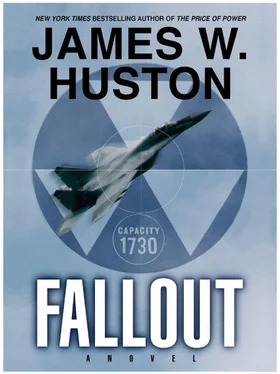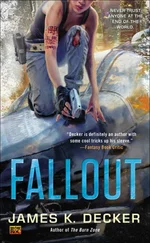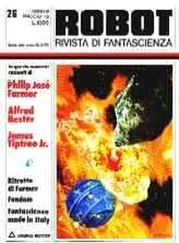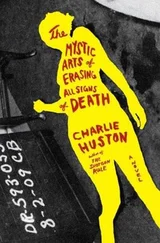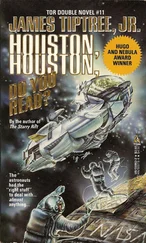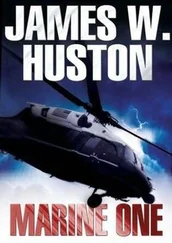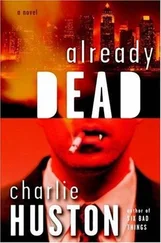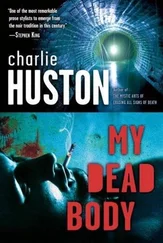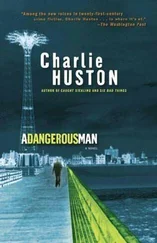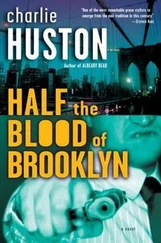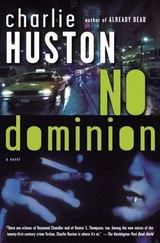“They did miss the reactors, didn’t they?”
“Yes, didn’t hit either one of them. They hit some low building, thank God. If they’d hit a reactor, they’d have to evacuate all of Southern California. Did they miss because you were there?”
“No. We got there as they were in their bombing runs. At least we don’t have a Chernobyl on our hands. Katherine, Thud didn’t make it…”
“Make what?”
“He was closing on one of the Paks, and the guy pulled back into him and just ran into him. They had a midair. He never had a chance.”
“He’s dead?” Katherine asked, stunned.
“Yeah.” He paused. “I saw the whole thing. He didn’t get out.”
“What about Michelle and their kids?”
“That’s just it. We’ve got to tell them.”
“I can’t just call her…”
“This is my one phone call. You have to.”
“Oh, Luke…” she said, groping for what to say. “She’s going to come completely apart. What about his father?”
“You’d better call him, too.”
She sighed and closed her eyes.
“Vlad got shot down. Khan got him with a Sidewinder. He jumped out. He’s probably wandering around on the beach somewhere north of the power plant. Make sure the government knows to go look for him. Of course, they’ll probably just arrest him, too. Stamp is right down the hall in another cell here in the brig.”
“This is outrageous. How can they be so incompetent?”
“They’ve got to find Khan, Katherine. They’ve got to find him.”
“He escaped? How? Where did he go?”
“He escaped in a submarine.”
“A submarine? That hasn’t been on the news.”
“Khan took his F-16 out over the ocean. I was right behind him. He went to a spot—probably based on a fix from a GPS he must’ve had with him—and just ejected. I was about to shoot him, and he jumped out. Then a sub came up and grabbed him.”
“Wow. Terrorists don’t run around in submarines. Who’s helping him?”
“Beats the hell out of me.”
“Whose submarine was it?”
“I don’t know. There weren’t any markings on it at all.”
“I’m coming down there, Luke.”
“No, stay there. You’re too pregnant.”
“No I’m not. I’ll be there by this afternoon. I’m going to get you out. Has anyone tried to question you?”
“Just briefly.”
“Don’t say anything. They’ll use it against you.”
“I don’t care. My life is ruined—”
“You’d better start caring. Your life is not ruined. This wasn’t your fault.”
“I’ll tell them whatever they need to know to catch Khan, Katherine. I can’t do it myself, so they’re going to have to do it.”
“I’m on my way,” she said.
“You don’t have to come—”
“I’ve already decided.”
Renee climbed into the taxi three blocks from the American embassy in Islamabad. The entire city was in stunned denial and disbelief over what had happened. It had hit them with same effect the Kennedy assassination and Pearl Harbor had had on the United States, but as the ones responsible, not as the victims. All of Pakistan was glued to CNN International, which was running an ongoing report on the four Pakistani pilots who’d been invited to an elite American fighter school and had responded by borrowing airplanes and secreting bombs into the country to drop them on an American nuclear power plant.
Renee knew there was a deep undercurrent of anti-Americanism throughout Pakistan. She’d become most vividly aware of it in 2000, when she began noticing the widespread display of posters in support of Osama bin Laden around the city, and even in private homes, hailing the terrorist as a hero for standing up to the West. Many parents had named children after him. Some of it was the general sense in many Islamic countries of being disregarded and held in low esteem by the West. Some of it was the perception that the United States treated India and Pakistan differently in matters nuclear. In spite of that underlying inclination to hold the United States in contempt, she saw genuine shock and shame on the faces of the Pakistanis out in public. They couldn’t believe that their government had attacked the United States.
The Pakistani government, though, was disclaiming all knowledge of the events and condemning the actions of its pilots as terrorism. As she had expected, the Chief Executive of Pakistan, himself a former General in the Pakistani Army, had gone on the air and condemned the action in the strongest possible terms. He pledged assistance to find and apprehend those responsible. He confirmed there was no Pakistani submarine anywhere near the area at the time and asserted that Pakistan had no idea who was supporting this attack by these renegade former Pakistanis but would leave no stone unturned in the attempt to find out. Renee also knew from her cohorts in D.C. that Pakistan hadn’t given any actual help so far.
Renee watched the street carefully. The cars were driving more slowly than usual, many of the drivers bent slightly forward, listening intently to the news reports on their radios. Those in stores and cafés were listening to strategically placed radios or televisions. She spoke to the driver, and he stopped at the intersection. She slid over and got out of the cab near the curb.
She looked for her contact. She’d been on her way out the door of one of her apartments to meet with him when Kevin had called. He’d told her to use her sources, to try to track down the truth. Good old Kevin. They’d been in the same “welcome aboard” class when they both went to work for the CIA five years before. He seemed to believe that gave him the right to call on her at any time to ask for a favor. Like old pals. But now he was working, at least indirectly, for Morrissey. That made Kevin’s requests legitimate, and by this time simply confirmed what she would be doing anyway. But Kevin still had to think of it as something she was doing for him. She didn’t mind. He’d been the only one in the entire CIA to actually be looking into the men who’d done this before the event occurred. Too late now, but Kevin had been onto something, and she’d barely given him the time of day.
Renee had set up the meeting quickly. She knew in her gut that she’d missed a rare opportunity to forestall the attack. If only she’d paid more attention to it over the last week or two. Intelligence matters often start out as minor “see what you can find” missions that sound, and usually are, horribly boring. If anyone knows why a thing is important, the field officers are rarely told, on the off chance that someone might try to get it out of them at the wrong time.
She crossed the street and headed for the train station. Her contact would be standing by the track waiting for the train that was to leave in thirty minutes. He’d told her which post he would be leaning against. She passed through the station out to the throng waiting for that train and glanced around. She counted posts, the ones holding the covered awning next to the train track to protect people from the weather. She saw the post with the out-of-place black paint at the top and maneuvered her way to stand by it. She breathed hard and put out her hand to hold herself up. Finally she leaned against the post. A man stood behind her reading a newspaper, no more than a foot away. He spoke to her in a low, whispered voice. “I cannot believe this has happened,” he said in Urdu. “Pakistan is shamed in front of the world!”
She nodded carefully without saying anything, then waited as he came around beside her and stood right next to her.
“This will bring down the government. No matter what happens, it is the end of the current government. I am sure.”
Renee thought about that for a moment. It hadn’t occurred to her. His newspaper obscured their faces, and the post blocked anyone on the other side from listening too carefully. “We might have stopped him,” she replied in her unaccented Urdu.
Читать дальше
